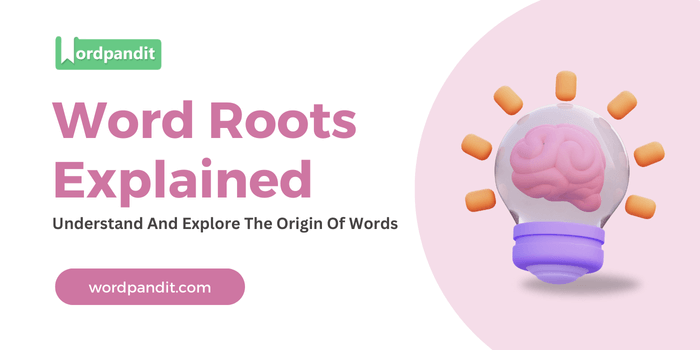Flect: The Root of Bending Language and Understanding
Discover the versatility of the root "Flect," originating from Latin, meaning "to bend." This root is the foundation of words that describe physical bending, emotional flexibility, and intellectual reflection. From "reflect" to "deflect," this linguistic cornerstone bends across fields, symbolizing adaptability and depth.
Table of Contents
- Introduction: The Essence of Flect
- Etymology and Historical Journey
- Mnemonic: Unlocking the Power of Flect
- Common Flect-Related Terms
- Flect Through Time
- Flect in Specialized Fields
- Illustrative Story: Flect in Action
- Cultural Significance of the Flect Root
- The Flect Family Tree
- FAQs About the Flect Word Root
- Test Your Knowledge: Flect Mastery Quiz
- Conclusion: The Living Legacy of Flect
Introduction: The Essence of Flect
What do mirrors, metal, and minds have in common? They all demonstrate the principle of bending or reflecting, central to the root "Flect." Derived from the Latin word flectere, meaning "to bend," this root appears in terms that range from physical deflection to metaphorical introspection.
Etymology and Historical Journey
The root "Flect" derives from the Latin flectere, meaning "to bend" or "curve." This root gave rise to words in multiple languages, retaining its essence of bending or altering direction.
Mnemonic: Unlocking the Power of Flect
Imagine a flexible metal rod labeled "Flect," bending effortlessly in different directions.
Mnemonic Device: “Flect is the root of flexibility, bending thoughts, light, and language.”
Common Flect-Related Terms
- Reflect: To throw back light, heat, or sound; or to think deeply. Example: "The lake reflected the moonlight beautifully."
- Deflect: To turn aside or cause to deviate. Example: "The goalie deflected the ball, saving the match."
- Inflect: To change the pitch or tone of voice; or to modify a word’s form. Example: "She inflected her voice to convey surprise."
- Genuflect: To kneel as a sign of respect. Example: "Worshippers genuflected before the altar."
- Flex: To bend or move. Example: "He flexed his arms to show off his strength."
Flect Through Time
Reflect: Evolved from physical reflection to intellectual introspection in philosophical discourse.
Deflect: Gained prominence in military contexts, describing the act of turning away blows or projectiles.
Inflect: Became central to linguistic studies, referring to grammatical changes in word forms.
Flect in Specialized Fields
- Physics: "Reflection" describes the return of light or sound waves from a surface.
- Linguistics: "Inflection" modifies words to express tense, mood, or number.
- Psychology: "Self-reflection" promotes introspection and emotional growth.
Illustrative Story: Flect in Action
During a stormy night, Sara, a lighthouse keeper, noticed the beacon’s light deflecting off turbulent waves. As she reflected on the storm’s unpredictability, she felt a deep connection to the forces of nature. Inspired, she wrote a poem, bending her thoughts into words.
Cultural Significance of the Flect Root
The concept of bending, inherent to "Flect," permeates cultural and philosophical traditions. In ancient philosophy, self-reflection was a path to enlightenment, while modern cultures emphasize flexibility as a marker of adaptability.
The Flect Family Tree
- Flex (Bend): Flexible (capable of bending easily).
- Fluct (Flow): Fluctuate (to rise and fall irregularly).
- Plic (Fold): Complicate (to fold together; make complex).
FAQs About the Flect Word Root
Q: What does "Flect" mean?
A: The root "Flect" comes from the Latin word flectere, which means "to bend." It applies to physical bending, intellectual flexibility, and linguistic inflections.
Q: What is the difference between reflect and deflect?
A: Reflect: To throw back light, heat, or sound, or to think deeply. For example, mirrors reflect light. Deflect: To redirect or turn aside, such as deflecting an arrow with a shield. While both involve changes in direction, reflect often returns to the source, whereas deflect redirects away.
Q: How does "Flect" relate to linguistics?
A: In linguistics, "Flect" appears in the term "inflection," which refers to modifying words to express grammatical categories like tense, number, or mood. For example, "talk" becomes "talked" in the past tense.
Q: What does genuflect symbolize?
A: Genuflecting, or bending one knee, symbolizes respect or reverence. This act is commonly seen in religious practices, such as kneeling before an altar.
Q: What is the historical significance of the root "Flect"?
A: Historically, "Flect" referred to physical bending or curving, like bending branches or metal. Over time, its metaphorical uses expanded, emphasizing adaptability in thought, language, and behavior.
Test Your Knowledge: Flect Mastery Quiz
1. What does the root "Flect" mean?
2. Which word describes kneeling as a sign of respect?
3. What does "Deflect" mean?
4. What is the linguistic meaning of "Inflection"?
5. Which term refers to bending light back?
Conclusion: The Living Legacy of Flect
The root "Flect" symbolizes adaptability and introspection. From bending light to bending thoughts, it bridges the physical and metaphorical. As language evolves, "Flect" continues to inspire self-awareness and flexibility in understanding.













